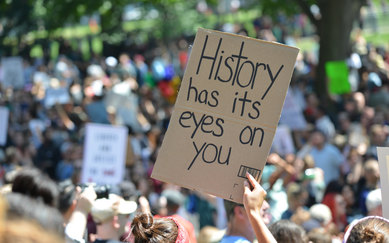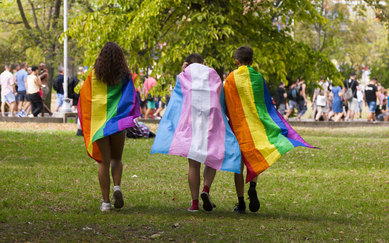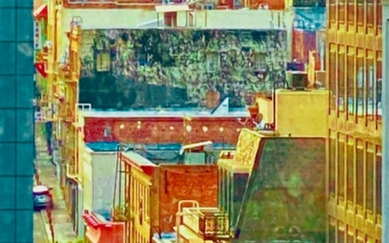Breaking Barriers – Designing a Better Future for the LGBTQIA+ Community
At SmithGroup, Pride does not stop on June 30th. We are committed to providing a just, equitable and supportive environment for our entire team every day of the year. Since we were not able to celebrate Pride Month together this year, a few of our teammates shared their reflections on Pride and the actions our project teams are taking to Design a Better Future that ensures all people, regardless of their sexual orientation, gender or racial identity, are free from bias and oppression.

PRIDE MONTH: THE PAST IS PRESENT
On June 28, 1969, Christopher Street in New York city erupted in chaos as patrons of the Stonewall Inn refused to disperse as police raided the bar and violated and arrested trans and queer patrons. This interaction turned into a multiple day, often violent exchange, between the LGBTQIA+ community of the Greenwich Village and the police. One year later, 50 years ago this month, the Christopher Street Liberation Day march, along with marches the same weekend in Chicago, Los Angeles and San Francisco, were the first Gay Pride Marches in U.S. history.

CAMPUSES THAT EMBRACE AND EMPOWER LGBTQ+ STUDENTS
The underlying systemic inequities highlighted by the COVID-19 pandemic and concurrent Black Lives Matter protests have underscored the need for traditional institutions like colleges and universities to redouble efforts to break down barriers and ensure students of all races, ethnicities, genders, gender expressions and sexual orientations feel welcome on campus.

REJECTING CONFORMITY AND BUILDING PRIDE AS A TRANSGENDER ARCHITECT
This year, Pride must address our inability to live up to our ideals of equity and justice. Amid reminders that inequality leads to increased rates of death and disease among those who society deems to be less valuable, we must recommit ourselves to making meaningful change.